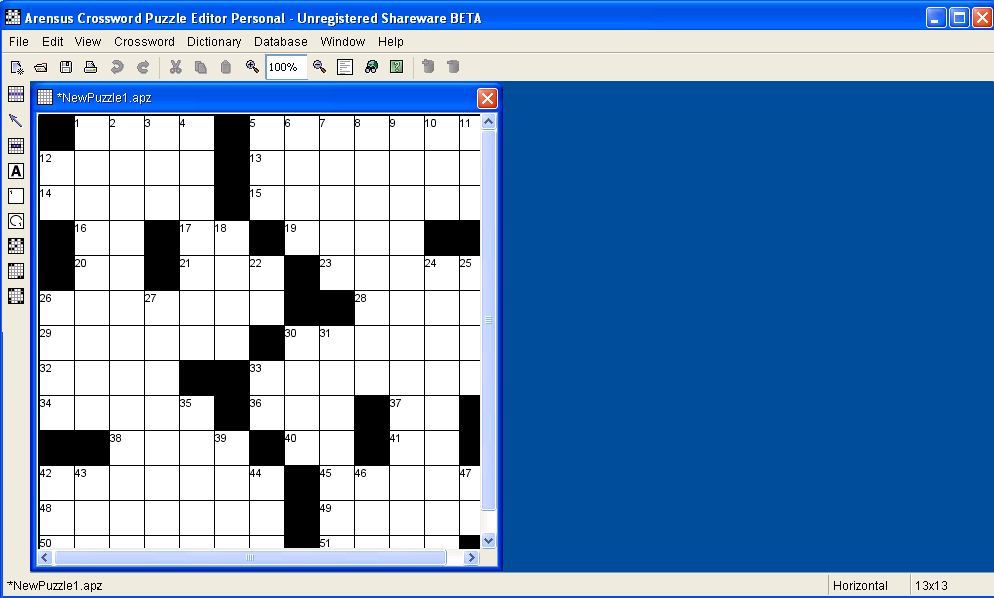

In addition to aiding in temporarily forgetting one’s troubles, crosswords challenge the mind to think in novel ways. Many cruciverbalists would certainly relate to Farrar’s statement. Margaret Farrar, who later became the paper’s first crossword editor, once wrote, “You can’t think of your troubles while solving a crossword …” In a grim but all too familiar world plagued by war, the prestigious newspaper realized that to provide its readers with a relatively mindless distraction was to provide them relief, if only temporarily. Indeed, a 1924 opinion column in the newspaper described crosswords as “a primitive sort of mental exercise.”īut after the bombing of Pearl Harbor on December 18, 1941, The Times realized that it “ought to proceed with the puzzle,” the Sunday editor Lester Markel wrote at the time. The Times believed that games of that sort were beneath them and undermined their high journalistic standards. Today, the most well-known crossword puzzle publisher is arguably The New York Times, but the newspaper was relatively late to embrace the national-and global-trend.

There was even a comic strip called “Cross Word Cal,” created by the cartoonist Ernie Bushmiller, and a 1925 Disney short entitled “Alice Solves the Puzzle.”
#Beloved crossword editor will free#
Lincoln Schuster-founders of the famed publishing house Simon & Schuster-published a crossword book, which came with a free pencil, in 1924. And after the war ended, readers still gravitated toward them. An illustrator later mistakenly referred to the game as a “Cross-Word,” and hence the name was born.īut the puzzles, in one sense, were vital they provided readers a brief respite from the dire news of the first World War that seemed to dominate the papers at the time. The first “Word-Cross puzzle” was created in 1913 by New York World editor Arthur Wynne, who wanted to add something new and exciting to the paper’s FUN section. Crossword puzzles challenge the mind they make one smarter! But a distraction is a distraction is a distraction, and, sometime or another, one will have to face what one was trying to escape. But surely the compulsion was different than these, I told myself. Crosswords became my Netflix, my Sports Center, my reality TV. Only much later did I realize that crossword puzzles, for me, were a politically correct form of escapism, a method to distract myself from my own thoughts, the painful idleness of boredom, the excruciating feeling of a lack of productivity. I developed a routine where I would print out the puzzle, grab a pencil with a good eraser, and bring them with me just about everywhere. This addition proved to be vital, for as my skills continued to improve, I finished each puzzle more quickly and could not have waited until Friday for a fresh one. Later, it would introduce a third, “moderately challenging puzzle” on Wednesdays, which felt like an early Christmas present. I looked forward to every Monday and Friday, when my beloved magazine published the “challenging puzzle” and the “lightly challenging puzzle,” respectively. My love affair with crosswords had already begun. Thus, to keep up with a common activity that would hopefully link us despite quarantining on opposite sides of the country, I decided to try my hand at what would become a fabulous way to pass the time during the long days of the pandemic.īut my mom was in fact referring to the jigsaw puzzle of a New Yorker cover we had sent him-not the crossword. As a New Yorker addict, I immediately assumed she was referring to the magazine’s crossword. Early on in the pandemic, my mom remarked how my brother, who lives in Brooklyn, was enjoying The New Yorker puzzle. It may even do wonders for your social life, heartthrob Chris Pine says: “One thing that I do find really sexy is a girl who’s good at crossword puzzles.My addiction to crossword puzzles began with a misunderstanding. In fact, we recommend that you do at least one a week. There are also numerous health benefits of crossword puzzles since they keep your brain sharp and engaged. If you thought crosswords were strictly dry and stuffy, fellow crossword aficionado, Jon Stewart found the romance in cruciverbalism when he proposed to his wife with a custom crossword puzzle. In 2007, Bill Clinton, who was featured in Wordplay, created his own Sunday Times crossword entitled Twistin’ the Oldies. In 2006 Wordplay, Patrick Creadon’s documentary about legendary NY Times crossword puzzle editor, Will Shortz was a surprise hit, proving that crosswords are as beloved as ever. by storm in 1913, enthusiasts have been touting the benefits of crossword puzzles for mental acuity and just good old-fashioned innocent entertainment.


 0 kommentar(er)
0 kommentar(er)
